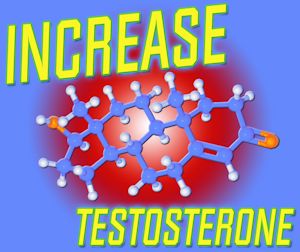Introduction to Testosterone Propionate
Testosterone propionate, a synthetic derivative of the naturally occurring hormone testosterone, has garnered significant attention in the realm of sports performance enhancement among American men. This anabolic steroid is favored for its rapid onset of action and shorter half-life compared to other testosterone esters, making it a popular choice for athletes seeking to boost their physical capabilities.
Mechanism of Action
The primary mechanism through which testosterone propionate exerts its effects is by increasing protein synthesis within muscle cells, leading to enhanced muscle growth and strength. Additionally, it promotes nitrogen retention in muscles, which is crucial for maintaining an anabolic state. This steroid also increases the production of red blood cells, thereby improving oxygen delivery to muscles, which can enhance endurance and performance during athletic activities.
Benefits in Sports Performance
American male athletes often turn to testosterone propionate to gain a competitive edge. The steroid's ability to increase muscle mass and strength is particularly beneficial for sports that require power and explosiveness, such as weightlifting, football, and sprinting. Furthermore, the improved red blood cell count can lead to better stamina and quicker recovery times, which are advantageous in endurance sports like cycling and long-distance running.
Potential Side Effects and Risks
Despite its performance-enhancing benefits, the use of testosterone propionate is not without risks. Common side effects include acne, hair loss, and mood swings. More severe risks include liver toxicity, cardiovascular issues, and hormonal imbalances that can lead to conditions such as gynecomastia (enlargement of breast tissue in men). The use of this steroid can also suppress natural testosterone production, necessitating post-cycle therapy to restore hormonal balance.
Legal and Ethical Considerations
In the United States, testosterone propionate is classified as a Schedule III controlled substance, meaning its use is regulated and requires a prescription. The use of this steroid for performance enhancement in sports is banned by most major sporting organizations, including the National Collegiate Athletic Association (NCAA) and the United States Anti-Doping Agency (USADA). Athletes caught using testosterone propionate can face severe penalties, including suspension and loss of titles.
Responsible Use and Alternatives
For American men considering the use of testosterone propionate, it is crucial to weigh the potential benefits against the risks and legal consequences. Consulting with a healthcare provider is essential to understand the implications fully. For those seeking to improve sports performance without resorting to anabolic steroids, alternatives such as proper nutrition, strength training, and adequate rest can be effective and safe methods to enhance athletic capabilities.
Conclusion
Testosterone propionate remains a controversial yet sought-after substance among American male athletes aiming to enhance their sports performance. While it offers significant benefits in terms of muscle growth, strength, and endurance, the associated risks and legal ramifications cannot be overlooked. As the debate over performance-enhancing drugs continues, it is imperative for athletes to make informed decisions and explore safer, legal alternatives to achieve their athletic goals.
Contact Us Today For A Free Consultation

- Testosterone Propionate: Enhancing Male Health and Managing Hormonal Imbalances in American Men [Last Updated On: March 1st, 2025] [Originally Added On: March 1st, 2025]
- Testosterone Propionate's Impact on Sleep Quality in American Males: A Therapeutic Overview [Last Updated On: March 18th, 2025] [Originally Added On: March 18th, 2025]
- Testosterone Propionate's Role in Male Pattern Baldness: Insights for American Men [Last Updated On: March 19th, 2025] [Originally Added On: March 19th, 2025]
- Long-term Testosterone Propionate Use: Health Risks for American Men [Last Updated On: March 19th, 2025] [Originally Added On: March 19th, 2025]
- Ethical Considerations of Testosterone Propionate Use in American Male Athletes [Last Updated On: March 19th, 2025] [Originally Added On: March 19th, 2025]
- Testosterone Propionate: A Potential Solution for Chronic Pain in American Males [Last Updated On: March 19th, 2025] [Originally Added On: March 19th, 2025]
- Testosterone Propionate: A Comprehensive Guide for Weight Management in American Men [Last Updated On: March 20th, 2025] [Originally Added On: March 20th, 2025]
- Testosterone Propionate's Impact on Cognitive Function in American Males: Benefits and Risks [Last Updated On: March 20th, 2025] [Originally Added On: March 20th, 2025]
- Testosterone Propionate: Enhancing Energy Levels in American Men [Last Updated On: March 21st, 2025] [Originally Added On: March 21st, 2025]
- Testosterone Propionate: Benefits, Risks, and Legal Considerations for American Men [Last Updated On: March 21st, 2025] [Originally Added On: March 21st, 2025]
- Testosterone Propionate: Enhancing Male Fertility in American Men [Last Updated On: March 22nd, 2025] [Originally Added On: March 22nd, 2025]
- Testosterone Propionate's Impact on Liver Health: Risks and Mitigation Strategies [Last Updated On: March 22nd, 2025] [Originally Added On: March 22nd, 2025]
- Testosterone Propionate: A Promising Treatment for Anemia in American Men [Last Updated On: March 22nd, 2025] [Originally Added On: March 22nd, 2025]
- Testosterone Propionate: A Promising Treatment for Depression in American Males [Last Updated On: March 22nd, 2025] [Originally Added On: March 22nd, 2025]
- Testosterone Propionate: Enhancing Male Aesthetics and Muscle Growth in America [Last Updated On: March 22nd, 2025] [Originally Added On: March 22nd, 2025]
- Testosterone Propionate: Enhancing Recovery and Performance in American Male Athletes [Last Updated On: March 22nd, 2025] [Originally Added On: March 22nd, 2025]
- Testosterone Propionate: A Promising Therapy for Osteoporosis in American Men [Last Updated On: March 22nd, 2025] [Originally Added On: March 22nd, 2025]
- Testosterone Propionate's Impact on Blood Pressure in American Men: A Comprehensive Analysis [Last Updated On: March 22nd, 2025] [Originally Added On: March 22nd, 2025]
- Testosterone Propionate: Enhancing Sexual Health in American Men Under Medical Supervision [Last Updated On: March 23rd, 2025] [Originally Added On: March 23rd, 2025]
- Testosterone Propionate's Impact on Immune Function in American Males: A Comprehensive Review [Last Updated On: March 23rd, 2025] [Originally Added On: March 23rd, 2025]
- Testosterone Propionate: Exploring Its Role in Stress Management for American Men [Last Updated On: March 23rd, 2025] [Originally Added On: March 23rd, 2025]
- Testosterone Propionate's Impact on Immune Function in American Men: A Comprehensive Review [Last Updated On: March 24th, 2025] [Originally Added On: March 24th, 2025]
- Testosterone Propionate's Impact on Diabetes Risk in American Males: A Comprehensive Review [Last Updated On: March 24th, 2025] [Originally Added On: March 24th, 2025]
- Testosterone Propionate: Effects on Mood and Considerations for American Men [Last Updated On: March 24th, 2025] [Originally Added On: March 24th, 2025]
- Testosterone Propionate's Impact on Cardiovascular Health in American Men: Risks and Benefits [Last Updated On: March 24th, 2025] [Originally Added On: March 24th, 2025]
- Testosterone Propionate: Enhancing Vitality and Performance in American Men [Last Updated On: March 24th, 2025] [Originally Added On: March 24th, 2025]
- Testosterone Propionate's Impact on Cholesterol Levels in American Men: Cardiovascular Risks [Last Updated On: March 24th, 2025] [Originally Added On: March 24th, 2025]
- Testosterone Propionate: Enhancing Strength and Performance in American Men [Last Updated On: March 24th, 2025] [Originally Added On: March 24th, 2025]
- Testosterone Propionate in HRT: Benefits, Risks, and Legal Aspects for American Males [Last Updated On: March 25th, 2025] [Originally Added On: March 25th, 2025]
- Testosterone Propionate's Impact on Mental Health in American Men: Benefits and Risks [Last Updated On: March 25th, 2025] [Originally Added On: March 25th, 2025]
- Testosterone Propionate: A Promising Aid in Managing Obesity in American Males [Last Updated On: March 25th, 2025] [Originally Added On: March 25th, 2025]
- Testosterone Propionate: Enhancing Joint Health in American Men [Last Updated On: March 25th, 2025] [Originally Added On: March 25th, 2025]
- Testosterone Propionate: Enhancing Fitness and Health in American Men [Last Updated On: March 26th, 2025] [Originally Added On: March 26th, 2025]
- Testosterone Propionate: Benefits, Administration, and Risks for American Men's Health [Last Updated On: March 26th, 2025] [Originally Added On: March 26th, 2025]
- Testosterone Propionate: Benefits, Dosage, Side Effects for American Male Bodybuilders [Last Updated On: March 26th, 2025] [Originally Added On: March 26th, 2025]
- Testosterone Propionate's Impact on Mental Health in American Men: Benefits and Risks [Last Updated On: March 26th, 2025] [Originally Added On: March 26th, 2025]
- Testosterone Propionate: Enhancing Performance and Risks for American Men [Last Updated On: March 26th, 2025] [Originally Added On: March 26th, 2025]
- Testosterone Propionate: Enhancing Fertility in American Males with Low Sperm Count [Last Updated On: March 26th, 2025] [Originally Added On: March 26th, 2025]
- Testosterone Propionate's Impact on Bone Health in American Men: Benefits and Risks [Last Updated On: March 27th, 2025] [Originally Added On: March 27th, 2025]
- Testosterone Propionate: Benefits, Risks, and Legal Issues for American Weightlifters [Last Updated On: March 27th, 2025] [Originally Added On: March 27th, 2025]
- Testosterone Propionate in Anti-Aging: Benefits, Risks, and Optimal Use in Men [Last Updated On: March 27th, 2025] [Originally Added On: March 27th, 2025]
- Testosterone Propionate: Enhancing Endurance in American Men - Benefits and Risks [Last Updated On: March 27th, 2025] [Originally Added On: March 27th, 2025]
- Testosterone Propionate: Managing Hormonal Imbalances in American Men [Last Updated On: March 27th, 2025] [Originally Added On: March 27th, 2025]
- Testosterone Propionate: Enhancing Muscle Recovery in American Men - Benefits and Risks [Last Updated On: March 27th, 2025] [Originally Added On: March 27th, 2025]
- Testosterone Propionate: A Promising Treatment for Chronic Fatigue in American Males [Last Updated On: March 28th, 2025] [Originally Added On: March 28th, 2025]
- Testosterone Propionate: Enhancing Sexual Health in American Men - Benefits and Risks [Last Updated On: March 28th, 2025] [Originally Added On: March 28th, 2025]
- Testosterone Propionate: A Promising Treatment for Muscle Wasting in American Males [Last Updated On: March 28th, 2025] [Originally Added On: March 28th, 2025]
- Testosterone Propionate: Boosting Energy in American Males with Low Testosterone [Last Updated On: March 28th, 2025] [Originally Added On: March 28th, 2025]
- Testosterone Propionate: Enhancing Libido and Sexual Performance in American Men [Last Updated On: March 28th, 2025] [Originally Added On: March 28th, 2025]
- Testosterone Propionate: Enhancing Muscle Growth and Strength in American Men [Last Updated On: March 29th, 2025] [Originally Added On: March 29th, 2025]
- Testosterone Propionate: Benefits and Risks for Managing Deficiency in American Men [Last Updated On: March 30th, 2025] [Originally Added On: March 30th, 2025]
- Testosterone Propionate: Cardiovascular Impacts and Risks in American Men [Last Updated On: March 30th, 2025] [Originally Added On: March 30th, 2025]
- Testosterone Propionate's Impact on Mood and Emotional Health in American Men [Last Updated On: April 2nd, 2025] [Originally Added On: April 2nd, 2025]
- Testosterone Propionate: Enhancing Sexual Health and Performance in American Men [Last Updated On: April 3rd, 2025] [Originally Added On: April 3rd, 2025]
- Testosterone Propionate: Benefits, Risks, and Ethics in Athletic Performance Enhancement [Last Updated On: April 5th, 2025] [Originally Added On: April 5th, 2025]
- Testosterone Propionate Boosts Bone Density in American Men: Benefits and Risks [Last Updated On: April 5th, 2025] [Originally Added On: April 5th, 2025]
- Testosterone Propionate: Enhancing Sexual Desire and Function in American Men [Last Updated On: April 7th, 2025] [Originally Added On: April 7th, 2025]
- Testosterone Propionate: Managing Deficiency in American Men - Benefits and Considerations [Last Updated On: April 9th, 2025] [Originally Added On: April 9th, 2025]
- Testosterone Propionate: A Promising Treatment for Fatigue in American Males [Last Updated On: April 9th, 2025] [Originally Added On: April 9th, 2025]
- Testosterone Propionate: Medical Uses, Fitness Benefits, and Regulatory Considerations [Last Updated On: April 9th, 2025] [Originally Added On: April 9th, 2025]
- Testosterone Propionate: Enhancing Muscle Strength and Performance in American Men [Last Updated On: April 9th, 2025] [Originally Added On: April 9th, 2025]
- Testosterone Propionate in HRT: Benefits, Risks, and Considerations for American Men [Last Updated On: April 9th, 2025] [Originally Added On: April 9th, 2025]
- Testosterone Propionate: Treating Muscle Loss in American Males [Last Updated On: April 10th, 2025] [Originally Added On: April 10th, 2025]
- Testosterone Propionate's Impact on American Men's Psychological Health: Benefits and Risks [Last Updated On: April 12th, 2025] [Originally Added On: April 12th, 2025]
- Testosterone Propionate: Enhancing Strength Training in American Men - Benefits and Risks [Last Updated On: April 12th, 2025] [Originally Added On: April 12th, 2025]
- Testosterone Propionate: Cardiovascular Risks and Benefits in American Men [Last Updated On: April 13th, 2025] [Originally Added On: April 13th, 2025]
- Testosterone Propionate: Impacts on American Men's Reproductive Health and Beyond [Last Updated On: April 13th, 2025] [Originally Added On: April 13th, 2025]
Word Count: 480





















